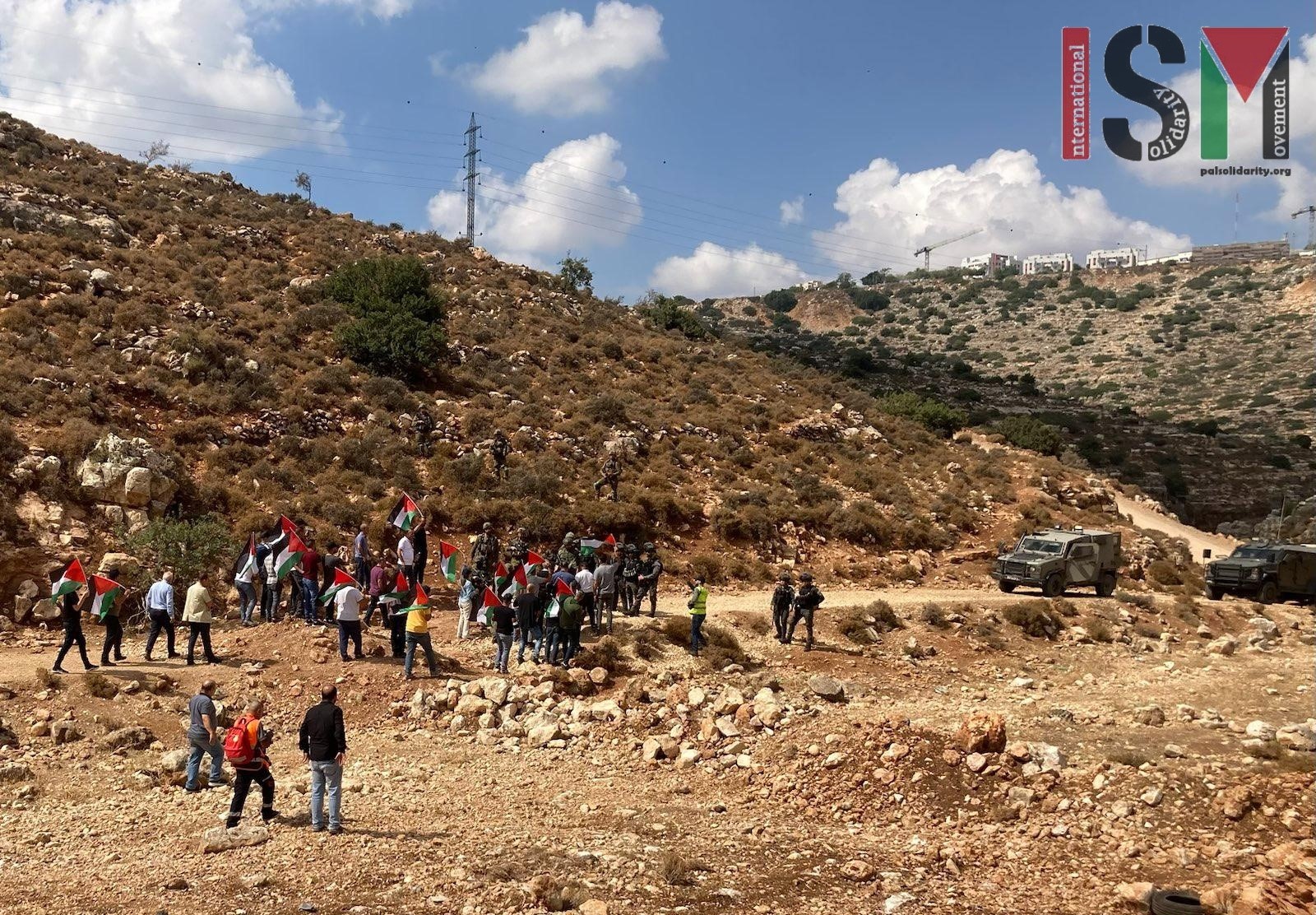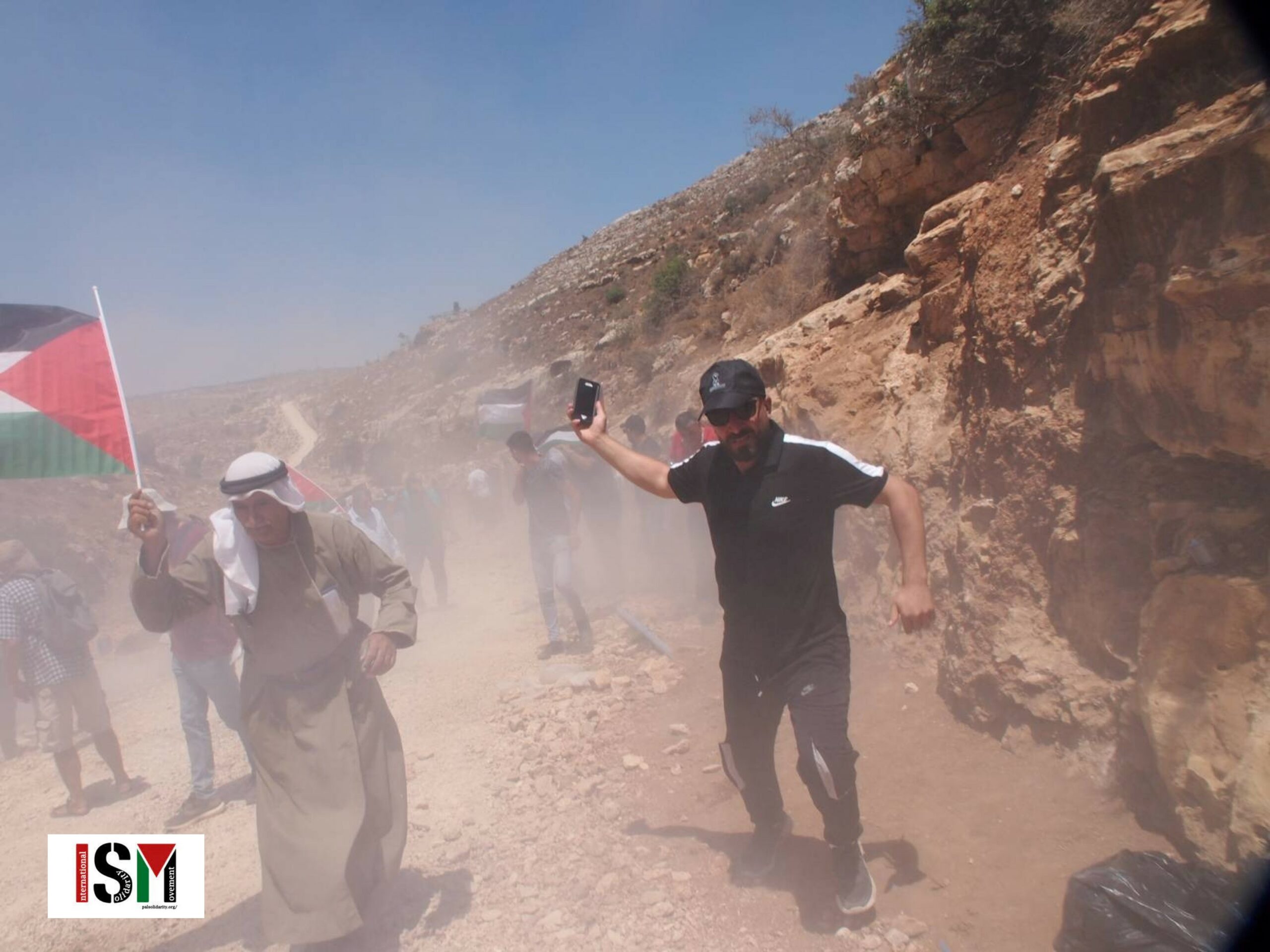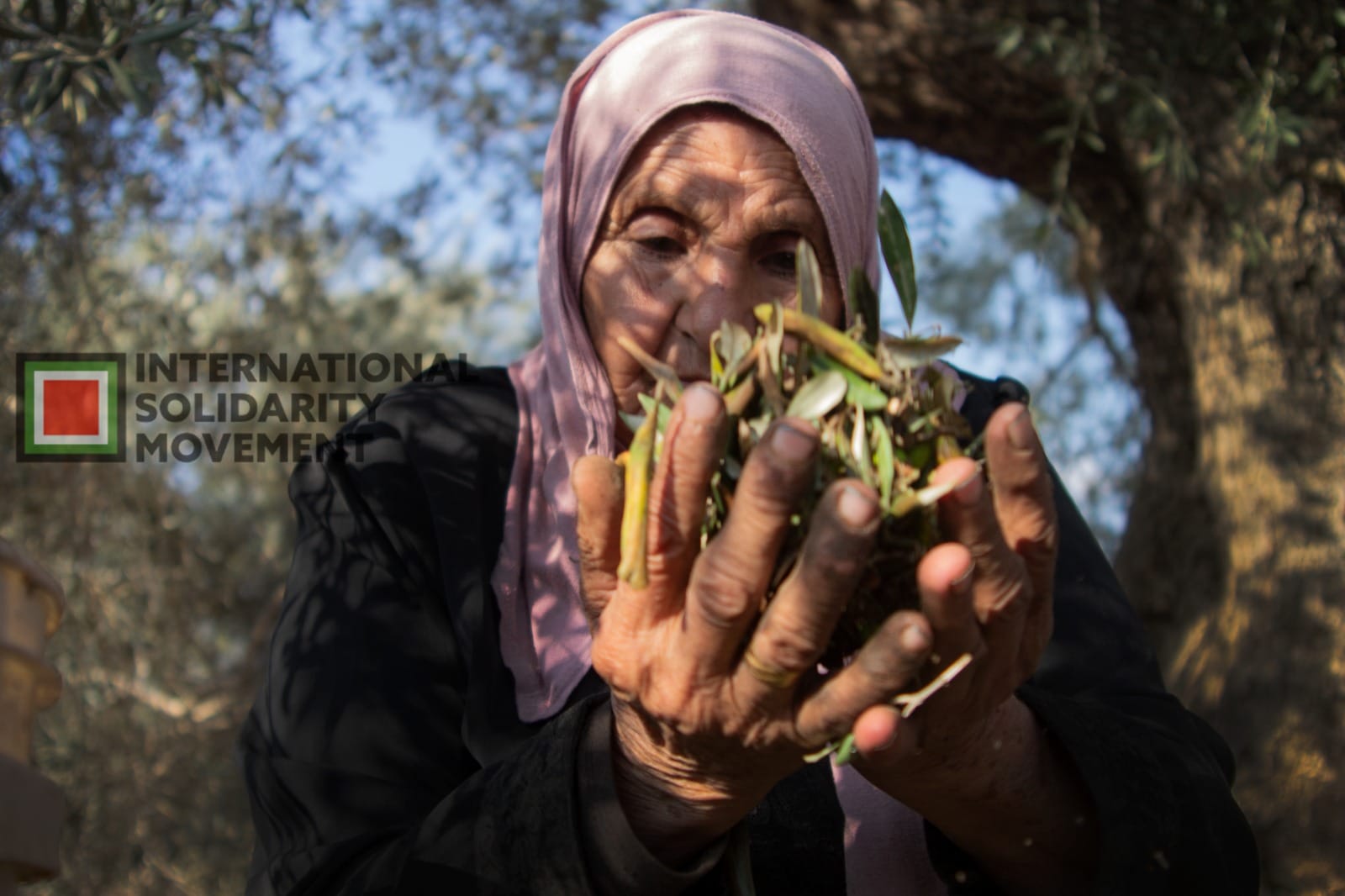Tag: Salfit
-

Weekly demonstration in Der Istya – 6th October
On Fridays 6th, people in Deir Istya protested against a new outpost that was built three months ago close to the village. After the prayer almost 70 protesters, among them members of the local Popular Resistance Committee, residents from the surrounding villages, ISM internationals and Israeli activists went down from the hill and, waving their…
-

Israeli army violently represses peaceful Friday demonstration
On Friday, August 4, a peaceful demonstration was violently attacked by the Israeli army around the West Bank village of Deir Istyia, Salfit governorate. About 30 Palestinians from Deir Istiya, including women, the elderly and children were on their way to the land north of the village, accompanied by a number of Israeli and international…
-

Olive Harvest 2022: Call for Volunteers
September 15 | International Solidarity Movement | Occupied Palestine ISM is issuing an urgent call out for volunteers to join the 2022 Olive Harvest at the invitation of Palestinian communities, starting next month. Olive trees are a national symbol in Palestine. As hundreds of thousands of trees have been uprooted by the Israeli military…
